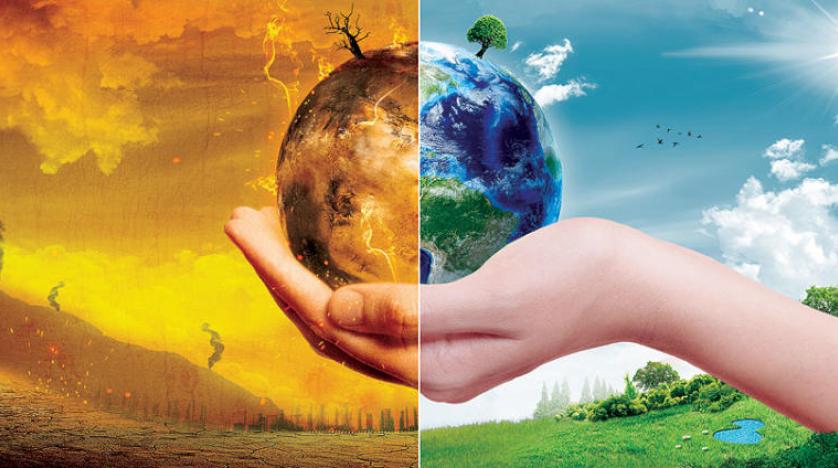Thursday, January 30, 2020
Press Release
The Forum for Development and Human Rights Dialogue on Thursday (January 30th) issued its first report on the impact of climate change on Egypt’s human rights system, which monitors the human rights situation from the perspective of environmental changes, where climate change and environmental changes affect a number of fundamental human rights.
The report monitors international moves to combat the adverse effects of climate change on people’s lives on the planet, which is observed in the rise of the earth’s surface temperatures to record levels, the rise of ocean and sea levels threatening land, and the most dangerous massive spread of viral diseases and their transmission across the world, most recently the Coronavirus, which originated from The Chinese city of Wuhan to a number of countries of the world, where studies on the disease indicate that it is a new mutation of a virus that infects the human respiratory system, and that if transmitted to respiratory patients has a fatal effect in the absence of drugs and vaccines that treat the virus for its modern appearance and the lack of identification of the animal transmitting the disease to humans.
The report points to the importance of states’ commitment to implementing the Sustainable Development Goals by working in a spirit of partnership and in practice so that today we can make the right choices to improve life, in a sustainable way, for future generations. It represents a comprehensive agenda to address the root causes of poverty and unite us together to bring about positive change for both human beings and the planet.
As the report noted UNDP’s activity in supporting the 2030 plan as a top priority for UNDP,” she said, “the Sustainable Development Goals provide us with a common plan and agenda to address some of the pressing challenges facing our world such as poverty, climate change and conflict and work to support countries on the path to sustainable development.”
The Intergovernmental Panel on Climate Change has also confirmed that anterogenic greenhouse gas emissions are the main cause of climate change, and the report identified the increased frequency of extreme weather events and natural disasters, rising sea levels, floods, heat waves, droughts, desertification and water shortages, and the spread of tropical and vector-borne diseases as some of the adverse effects of climate change, which directly and indirectly endanger the full and effective enjoyment of people around the world with a variety of Human rights, including the right to life, the right to water and sanitation, the right to food, the right to health, the right to housing, the right to self-determination, the right to culture and the right to development.
The negative effects of climate change are also disproportionately borne by people and communities living in deprivations due to geography, poverty, gender, age, disability, cultural or ethnic background, among other reasons, who have historically contributed less to greenhouse gas emissions. In particular, people, communities, and even those in entire countries, occupying low-lying and scarce coastal lands, the Arctic and arid lands, and other fragile ecosystems and vulnerable areas, and relying on them for habitation and survival, are at the greatest risk of climate change.
The report monitored the dangers facing Egypt due to climate change and its plan to reduce the causes of climate change.
Said Abdel Hafez, President of the forum, pointed out that Egypt has taken several measures to deal with the issue of climate change, including ratification of the United Nations Convention on Climate Change and the issuance of Environmental Law No. 4 in 1994, and participation in all international conferences and workshops related to climate change.
Egypt has also ratified the Kyoto Protocol and the formation of the National Committee for the Clean Development Mechanism and Egypt is working to promote projects to improve energy efficiency through the Ministry of Electricity by working on several projects in the field of new and renewable energies “wind-solar-hydro-bio”, with the implementation of projects to protect beaches through the Ministry of Water Resources and Irrigation, the establishment of specialized research institutes in cooperation with development partners, and Egypt is implementing a project funded by the World Water Facility to draw the shore line, and identify the points that cause drowning, This is in the eastern regions such as Port Said, Kafr al-Sheikh, Rashid and Damietta.”
The report linked Egypt’s implementation of its climate change plan to its five-place jump in the 2019 Global Climate Change Performance Guide to 24th out of 57 countries.
The report called for a number of recommendations, the most important of which are increased international cooperation to reduce greenhouse gas emissions to zero by 2050 at the latest, and cooperation to implement the Sustainable Development Goals.






